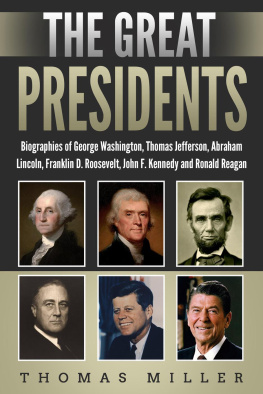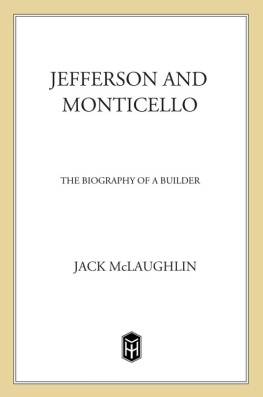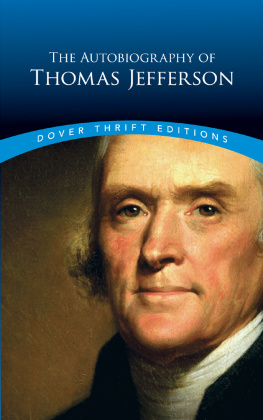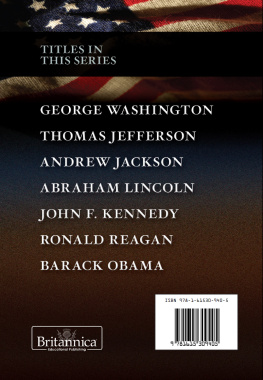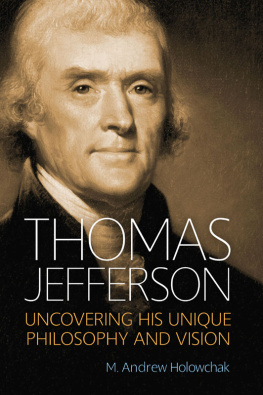Andrew Burstein - Democracys Muse: How Thomas Jefferson Became an FDR Liberal, a Reagan Republican, and a Tea Party Fanatic, All the While Being Dead
Here you can read online Andrew Burstein - Democracys Muse: How Thomas Jefferson Became an FDR Liberal, a Reagan Republican, and a Tea Party Fanatic, All the While Being Dead full text of the book (entire story) in english for free. Download pdf and epub, get meaning, cover and reviews about this ebook. City: Charlottesville, year: 2015, publisher: University of Virginia Press, genre: History. Description of the work, (preface) as well as reviews are available. Best literature library LitArk.com created for fans of good reading and offers a wide selection of genres:
Romance novel
Science fiction
Adventure
Detective
Science
History
Home and family
Prose
Art
Politics
Computer
Non-fiction
Religion
Business
Children
Humor
Choose a favorite category and find really read worthwhile books. Enjoy immersion in the world of imagination, feel the emotions of the characters or learn something new for yourself, make an fascinating discovery.

- Book:Democracys Muse: How Thomas Jefferson Became an FDR Liberal, a Reagan Republican, and a Tea Party Fanatic, All the While Being Dead
- Author:
- Publisher:University of Virginia Press
- Genre:
- Year:2015
- City:Charlottesville
- Rating:5 / 5
- Favourites:Add to favourites
- Your mark:
Democracys Muse: How Thomas Jefferson Became an FDR Liberal, a Reagan Republican, and a Tea Party Fanatic, All the While Being Dead: summary, description and annotation
We offer to read an annotation, description, summary or preface (depends on what the author of the book "Democracys Muse: How Thomas Jefferson Became an FDR Liberal, a Reagan Republican, and a Tea Party Fanatic, All the While Being Dead" wrote himself). If you haven't found the necessary information about the book — write in the comments, we will try to find it.
In political speech, Thomas Jefferson is the eternal flame. No other member of the founding generation has served the agendas of both Left and Right with greater vigor. When Franklin Roosevelt dedicated the iconic Jefferson Memorial on the founders two hundredth birthday, in 1943, he declared the triumph of liberal humanism. Harry Truman claimed Jefferson as his favorite president, too. And yet Ronald Reagan was as great a Jefferson admirer as any Democrat. He had a go-to file of Jeffersons sayings and enshrined him as a small-government conservative.
So, who owns Jefferson--the Left or the Right? The unknowable yet irresistible third president has had a tortuous afterlife, and he remains a fixture in todays culture wars. Pained by Jeffersons slaveholding, Democrats still regard him highly. Until recently he was widely considered by many African Americans to be an early abolitionist. Libertarians adore him for his inflexible individualism, and although he formulated the doctrine of separation of church and state, Christian activists have found intense religiosity between the lines in his pronouncements.
The renowned Jefferson scholar Andrew Burstein lays out the case for both Democrat and Republican Jefferson as he interrogates historys greatest shape-shifter, the founder who has inspired perhaps the strongest popular emotions. In this timely and powerful book, Burstein shares telling insights, as well as some inconvenient truths, about politicized Americans and their misappropriations of the past, including the concoction of a Jeffersonian stance on issues that Jefferson himself could never have imagined.
Here is one book that is more about us than it is about Jefferson. It explains how the founding generations most controversial partisan became essential to Americas quest for moral securityhow he became, in short, democracys muse.
Andrew Burstein: author's other books
Who wrote Democracys Muse: How Thomas Jefferson Became an FDR Liberal, a Reagan Republican, and a Tea Party Fanatic, All the While Being Dead? Find out the surname, the name of the author of the book and a list of all author's works by series.

